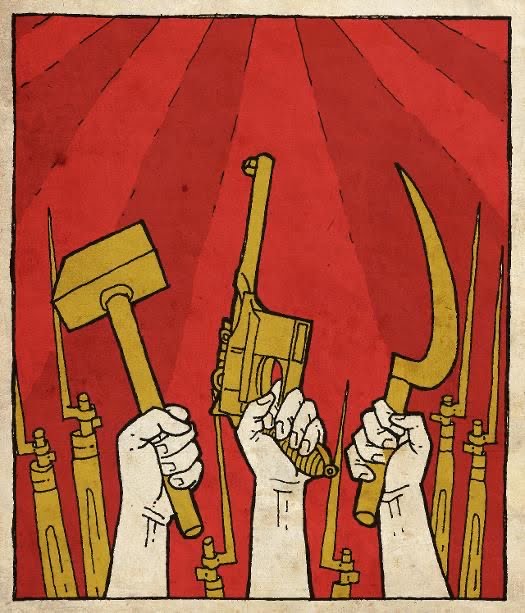Throughout the 20th and even the 21st century thus far, many countries have tried and eventually failed to stray off of the capitalist path. With the collapse of the Soviet Union it became more apparent. And with late stage capitalism in full force in many major countries, we can find ourselves questioning why it didn’t work out. The alternatives to capitalism have long since been debated.
Communism is a specific form of socialism and as stated by Wikipedia “is a philosophical, social, political, and economic ideology and movement whose ultimate goal is the establishment of a communist society, namely a socioeconomic order structured upon the ideas of common ownership of the means of production and the absence of social classes, money, and the state.”
Modern communism first emerged when Karl Marx wrote the Communist Manifesto and the Russian October Revolution, in 1917, led by Vladimir Lenin were the first to try to put this into practice. This seemed to set off a trend of communist revolutions and uprisings across the globe in a red wave. Soon, the Union of Soviet Socialist Republics, (USSR) was rivals with the US. China followed in the USSR’s footsteps and many democratic countries, mainly the US, began to feel threatened.
The most obvious display against communism is undoubtedly the Cold War and the proxy wars fought during that time. Proxy wars are wars- often civil wars in which both sides were supplied by an often bigger country to continue an agenda. In the Cold War, the USSR was trying to expand communist influence and the US was trying to control and stomp out communist power. Examples of these conflicts include the Soviet Afghan War, The Korean War, and the Vietnam War.
However, sometimes war wasn’t the answer to squash communism- in smaller, less developed countries manipulation behind closed doors was a better answer. Assassinations and assassination attempts of democratically elected communist leaders were common at the time. Political assassinations were supposedly outlawed by an executive order signed by President Gerald Ford in 1976- but President Reagan overturned this ruling in 1981.
These assassinations never stopped, however, and instead were called something else. These attempts became known as targeted killings, and these ranged from drone attacks to aerial bombings. One of the more well known examples of this is the repeated assassination attempts on Cuban leader Fidel Castro. For nearly fifty years the CIA (along with other opposition groups in Cuba) has tried and failed to kill the controversial politician with unique ways including explosive cigars and a poisoned scuba diving suit.
A theory brought up by an article written by Vladimir Platov on the New Eastern Outlook that stated that the US’s secret services could have engineered a cancer virus- as cancer related deaths in Latin American politicians, including Fidel Castro and Venezuelan President Hugo Chavez increased suddenly at the same time- certainly implying that it couldn’t have been a coincidence.
The US and its secret service have seemingly always been, well, secretive with what they do with the millions of taxpayer dollars that they receive. This doesn’t necessarily mean that a theory about engineering a cancer virus to wipe out politicians in Latin America is true, but it does give food for thought when reflecting on political history and the fierce battle between communism and capitalism.



